A familiar face to fans of The Watches, Iolo Williams spent 14 years working for the RSPB in Wales before becoming a natural history presenter for the BBC and S4C. He presents in both Welsh, his first language, and English.
Alongside presenting, he has written seven books, including Wild Places: Wales' Top 40 Nature Sites and Wild Places UK; UK's Top 40 Nature Sites.
Who is Iolo Williams?
Iolo Williams is a Welsh wildlife presenter, ornithologist and conservationist. He is well-known as one of the main presenters of BBC Two's Springwatch, Autumnwatch and Winterwatch (collectively known as The Watches), having first joined the programme as a field reporter. He presents alongside Chris Packham, Michaela Strachan and Megan McCubbin.
In 2021, Iolo presented from the Centre for Alternative Technology in Wales for Winterwatch, and from Alladale Wilderness Reserve in Scotland for Springwatch. Due to the rescheduling of Autumnwatch in 2021 (to accommodate the FA Cup broadcasts), Iolo was unavailable to present as he was already scheduled to do other work. For Springwatch in 2022, he will be presenting from the Isle of Mull.
Iolo was also presented for the Welsh language channel S4C, and a number of Welsh natural-history programmes for the BBC, including Iolo's Pembrokeshire, Iolo: The Last Wilderness of Wales, and the upcoming Iolo's Anglesey.
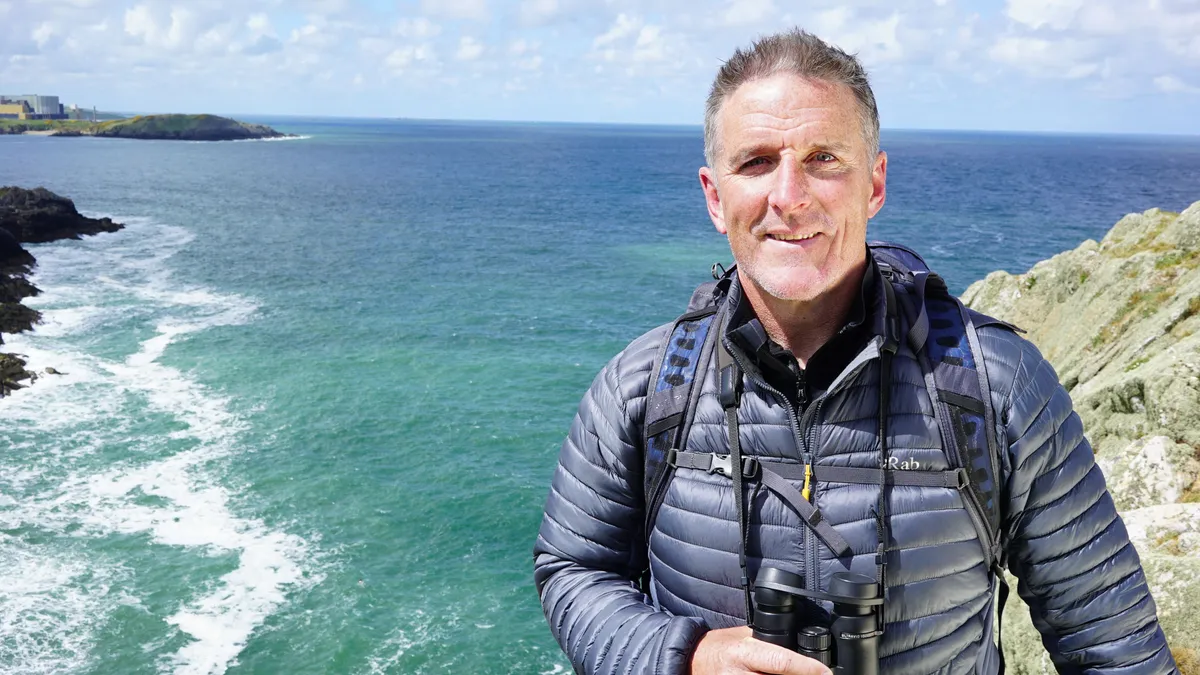
How old is Iolo Williams?
Iolo Williams was born on 22 August 1962 in Builth Wells, Breconshire.
Where did Iolo Williams grow up?
Born in Builth Wells, Iolo Williams' family moved when he was young to Pembrokeshire and then to Montgomeryshire when he was five years old and he grew up in Llanwddyn near Lake Vyrnwy..
Where did Iolo Williams study?
He almost joined the British Army, but then studied Ecology at the North East London Polytechnic (now the University of East London).
Who is Iolo Williams' wife?
Iolo Williams wife is Ceri Williams.
Does Iolo Williams have children?
He and Ceri have two children, sons Dewi and Tomos.
Where does Iolo Williams live?
He now lives with his wife near Newtown in Powys.
How did Iolo Williams get into television?
After studying ecology at university he joined the Royal Society for the Protection of Birds (RSPB) in 1985, where he stayed for 14 years. His work in the field and as a regional co-ordinator led to his making regular appearances in the media as a leading expert on Welsh bird life.
In 1997 Iolo teamed up with the BBC Wales to make his fist TV programme Visions of Snowdonia.
BBC Wildlife interview with Iolo Williams:
Why is it called Springwatch when it’s filmed in summer?
Although a lot of the presenting is live, there are a lot of inserts that will have been filmed during spring. Whereas if the programme aired in April, a lot of the pre- recorded films would be from winter. So it makes sense that it’s on the cusp of spring going into summer. And whilst it’s summer for much of England, there's an awful lot of the UK north of the English border, and it’s very much still spring up on Mull where I’m presenting.
It's a brilliant time to go up to Mull, as we're just going to enter into one of the best times – the bluebell woods are magnificent, cowslips and dandelions are beginning. One or two other flowers will be just beginning to to poke their heads up as well, so yeah it's going to look magnificent.
Why do The Watches keep sending you up to Mull?
I love Mull, I really do. I think I've spent almost as much time in Scotland as I have in Wales over the last few years, and a lot of that time is on Mull. And it's because of a combination of things really, I've been going up there since 1991. I was working for the RSPB then and I took two weeks leave to go up and help them ward one of the few pairs of white-tailed eagles in the UK at that time. And I fell in love with Mull, and have been going back ever since.
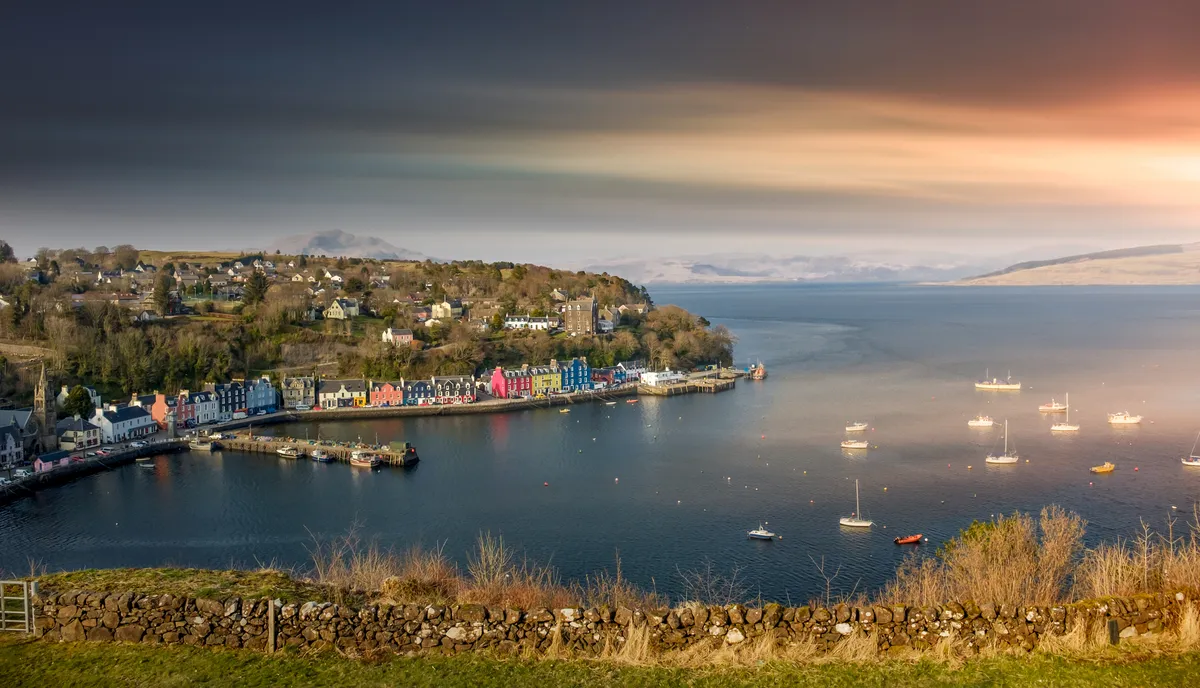
It's small enough for you to get to know intimately but big enough to always throw up a few surprises – you know there's always something new to find out there and it's such a beautiful place.
Do you ever get to visit any of the other islands around there as well?
I do, and have done so in the past too. I was working at it the other day I think I've been involved with The Watches one way or another, for about 11 or 12 years now.
And for a while I was a roving presenter, so they would send me to Argyll, Shetland and Orkney and that was brilliant, you know, because you get to see some of the best parts of the UK.
While we're on Mull, we sometimes get to some of the local islands to look at seabirds such as puffins, guillemots, and razorbills. I'd love to get across to Iona, I've actually never been to it – I'm always so busy when I'm on Mull concentrating on Mull, but maybe I'll try to twist their arms to let me pop over to Iona in search of the elusive corncrake across there.
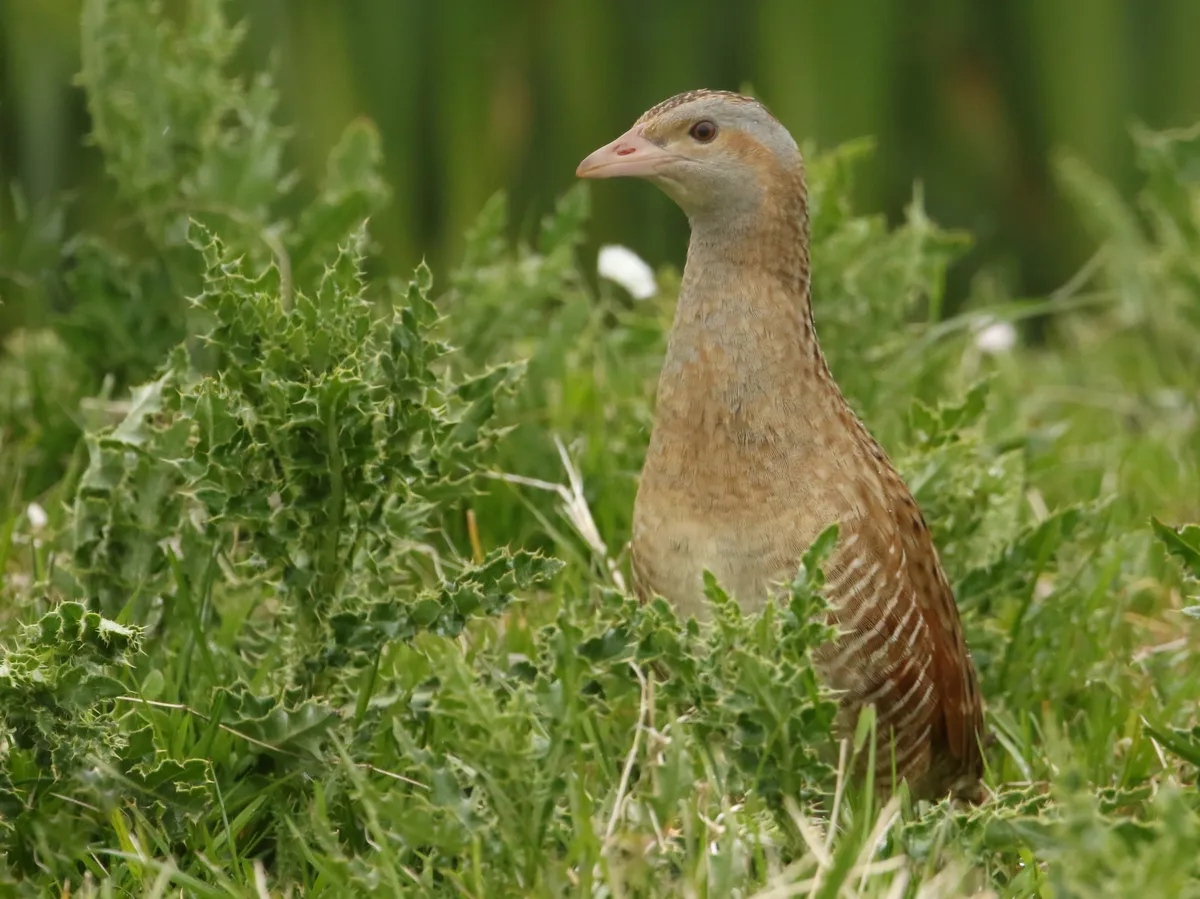
How much of the show is scripted and how much is on-the-fly?
Most of it is kind of half and half really. We don’t have a script as such, what you have is a running order. You might be coming off the back of an insert, such as a lovely film on cuttlefish, so I know I need to say something on that, that will then lead onto my subject. I’ll have a couple of words on my cue card to remind me on the topics I need to cover, and then I’ll need to link to whatever is coming next.
How far does the competitiveness between you and Chris Packham continue off the set?
I never ever argue with him because he's so clever – I don't understand what he's saying half the time. I'm Welsh first language, English is actually my second language and when he goes into these long words scientific terms, I just nod and smile because I haven't got a clue what he's all about!
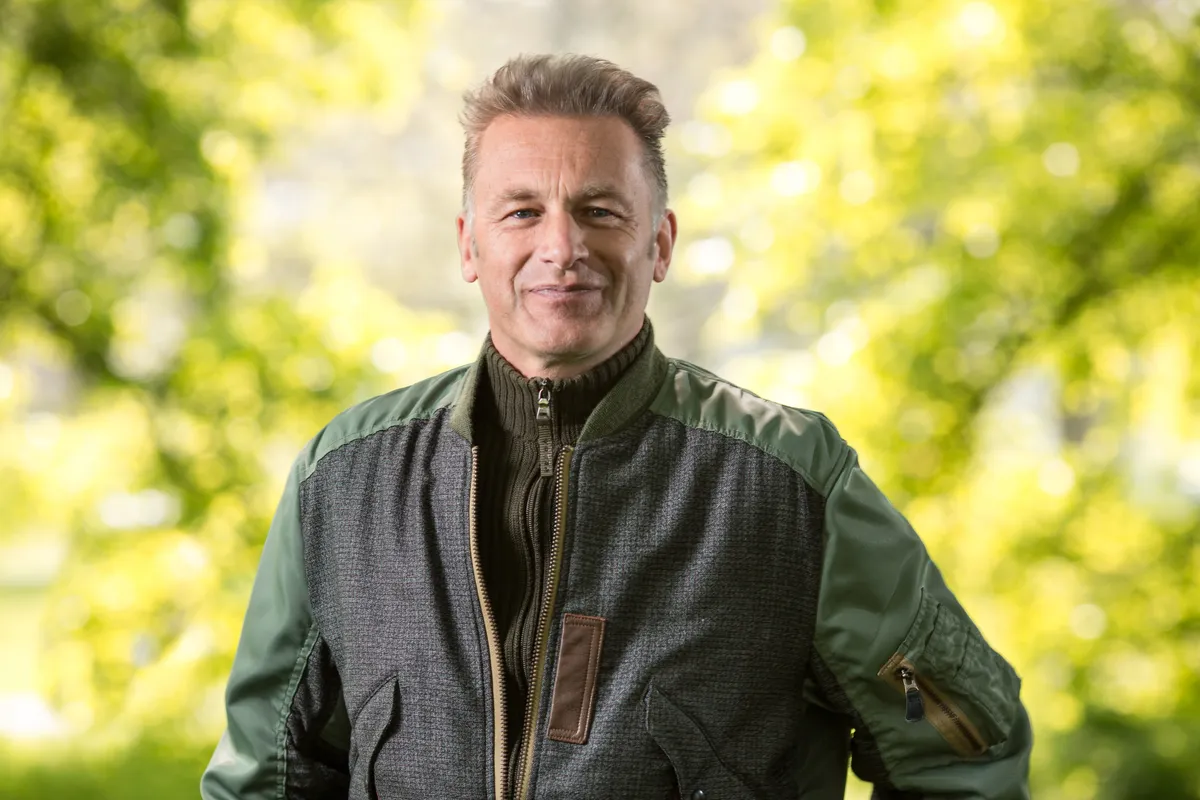
But we're kind of nicely competitive. We really really good mates I've known him for for probably almost 30 years I think now. So, we're competitive but not to the extreme.
I played sports all my life and when I played sport I was very competitive – I had to win at everything. I wasn't a bad loser, but I had to win at everything. With Chris it's kind of competitiveness but at a game level if you like.
What would you say is your best watches memory?
Picking a highlight is difficult. I'll give you two or three rapid fire ones and you'll see why I find it difficult to pick one!
One that immediately jumps to mind was the first time I ever saw orcas was when we were filming up at Caithness. The report came in, and I remember we left our food and it must have been important because I had sticky toffee pudding with custard. I remember that – I love sticky toffee pudding with custard, so for me to abandon it, it had to be a very good reason.
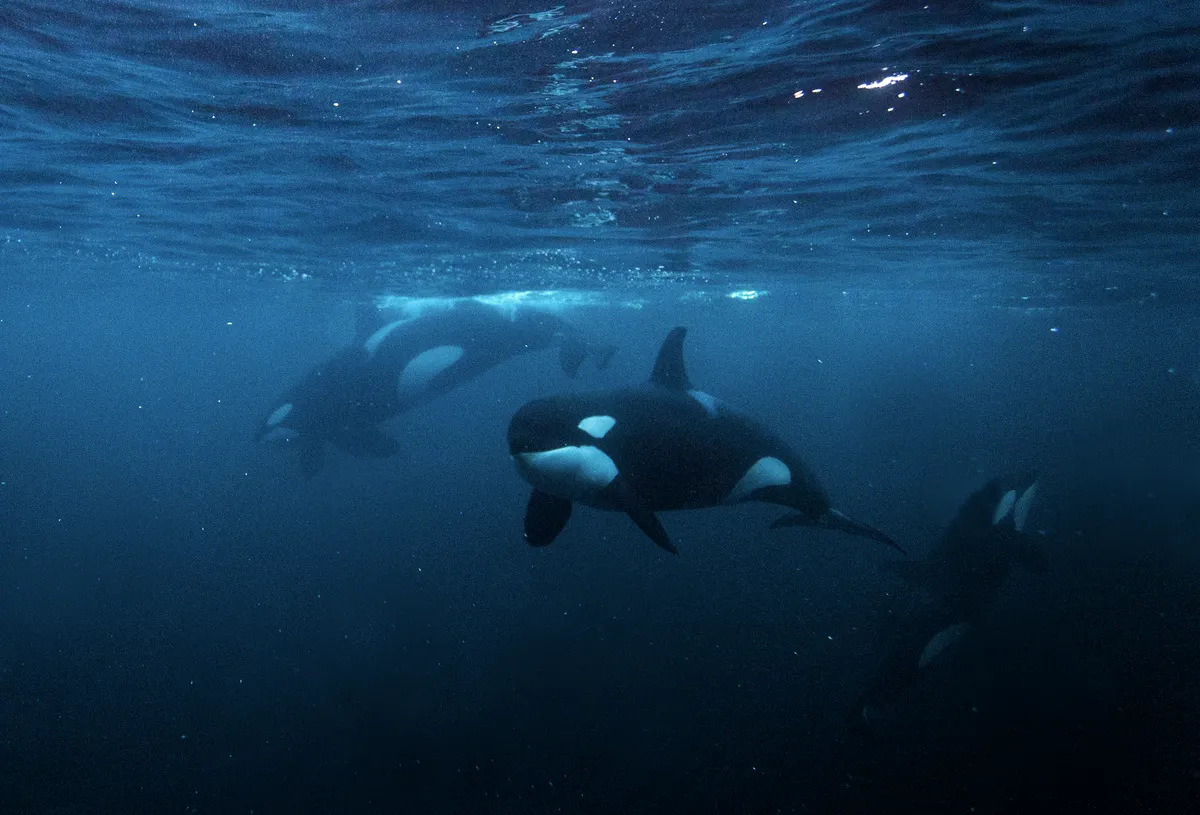
We jumped in the car, and we filmed everything as we went and we came across the pod. And seeing this massive of dorsal fin of the bull – six foot tall! We went ahead we saw them come past, and we went on again and filmed them again.
And that was really memorable first time I ever seen orcas and it's one of the few creatures I've ever seen where you are literally speechless and I was well aware of the fact, you've got to say something as you're presenting. I just wanted was to look and just go, “wow”. It really was an amazing moment.
Another time, we dived with gannets off Bass Rock one year, we were only about three three and a half meters down and then the gannets were hitting the water all around me. You could feel them hit the water, you have a “boom, boom, boom”. It was like a seismic effect and it just incredible.
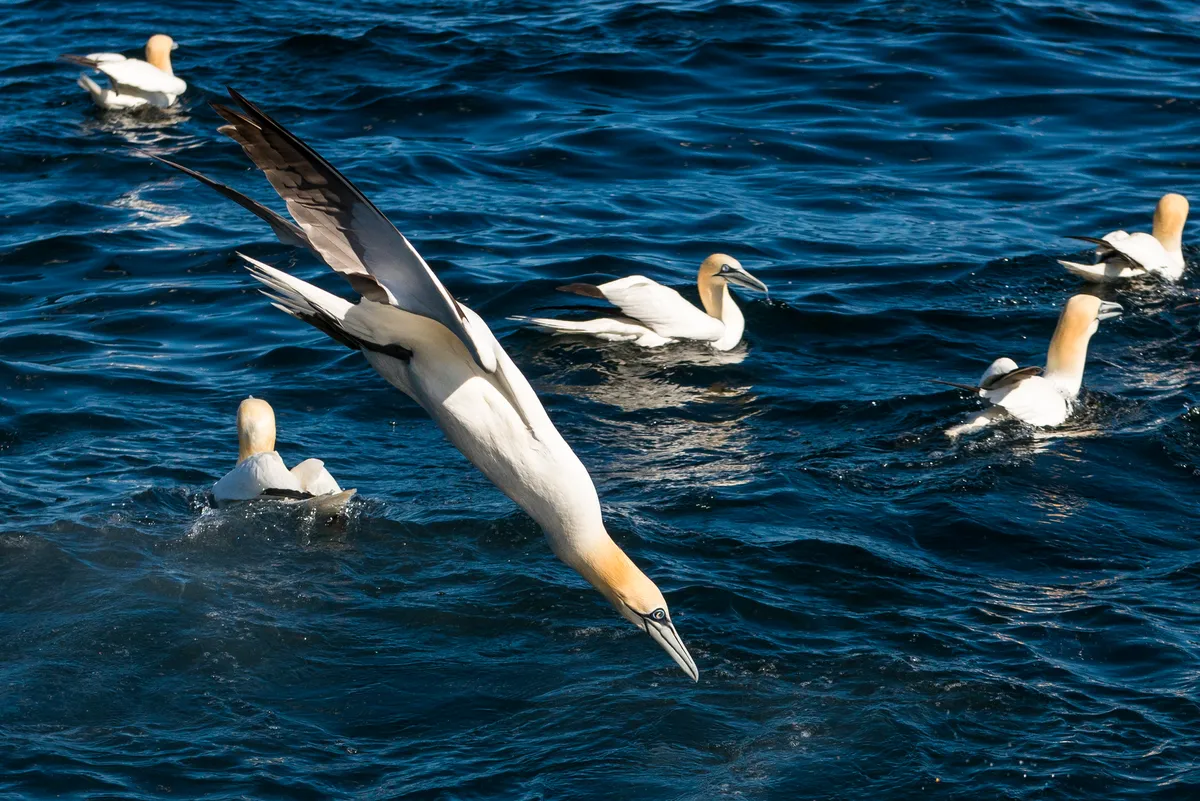
I'll throw another highlight in - an underwater one. It was diving at Stony Cove, which is an inland pool in Leicestershire, and we wanted to film pike. Now these are very big fish and highly territorial. When the temperature reaches 9°C, those territories breakdown and the females wander all around the river – or in this case, all around the pool, looking for a mate.
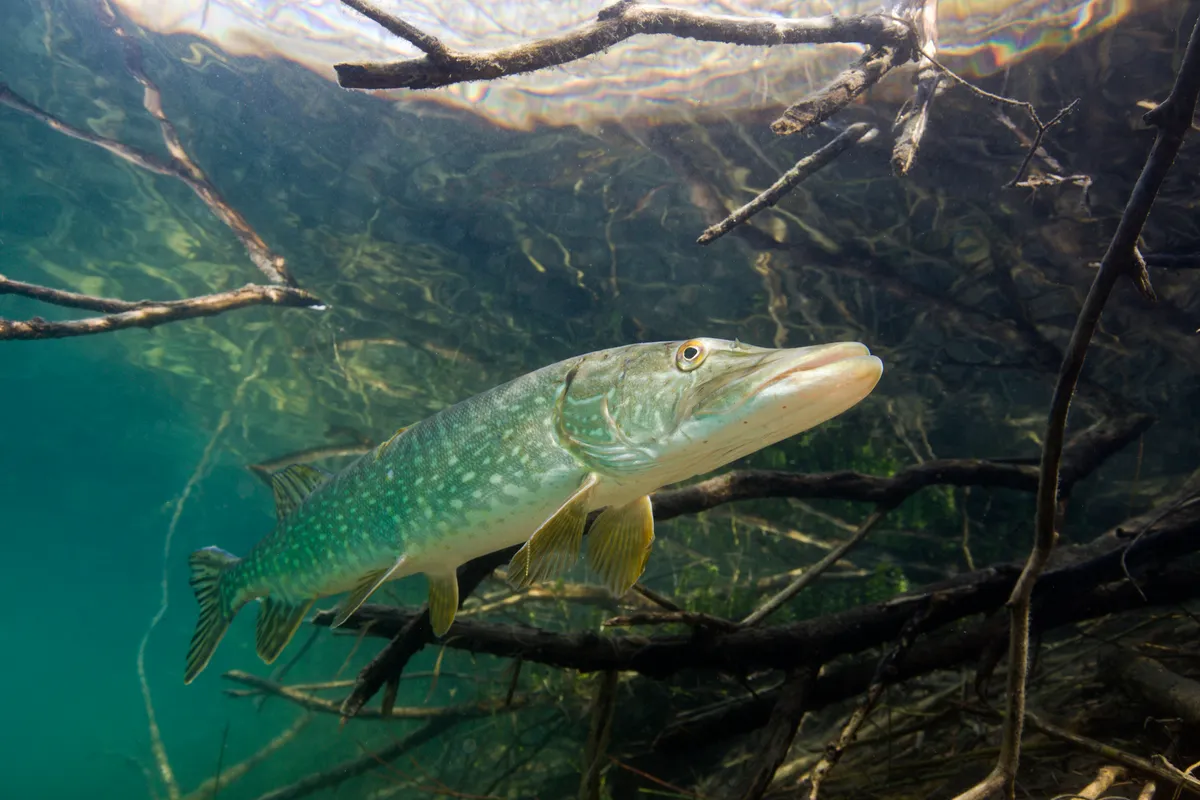
So what you get is a huge female, with two or three males going after. And they virtually no fear of humans!
We dived on this day, had a massive female coming right past us, with three or four smaller males just going round and round. That was magical.
I can't just pick one event, there are so many memorable things and that is the joy of The Watches particularly Springwatch for me, as you get sent to some of the most beautiful parts of the UK to film the most stunning wildlife, whether it's flowers, or bees or reptiles, amphibians, birds, mammals, it doesn't matter – and you get paid for it! It's just madness, it's just absolute madness.
What is your favourite place to visit for The Watches?
I would have to say probably Skomer Island off the Pembrokeshire coast. It's home to 6,000 pairs of puffins, there's about half a million seabirds on there. It's such an amazing and incredible place, and I was lucky enough to report from Skomer for Springwatch one year.
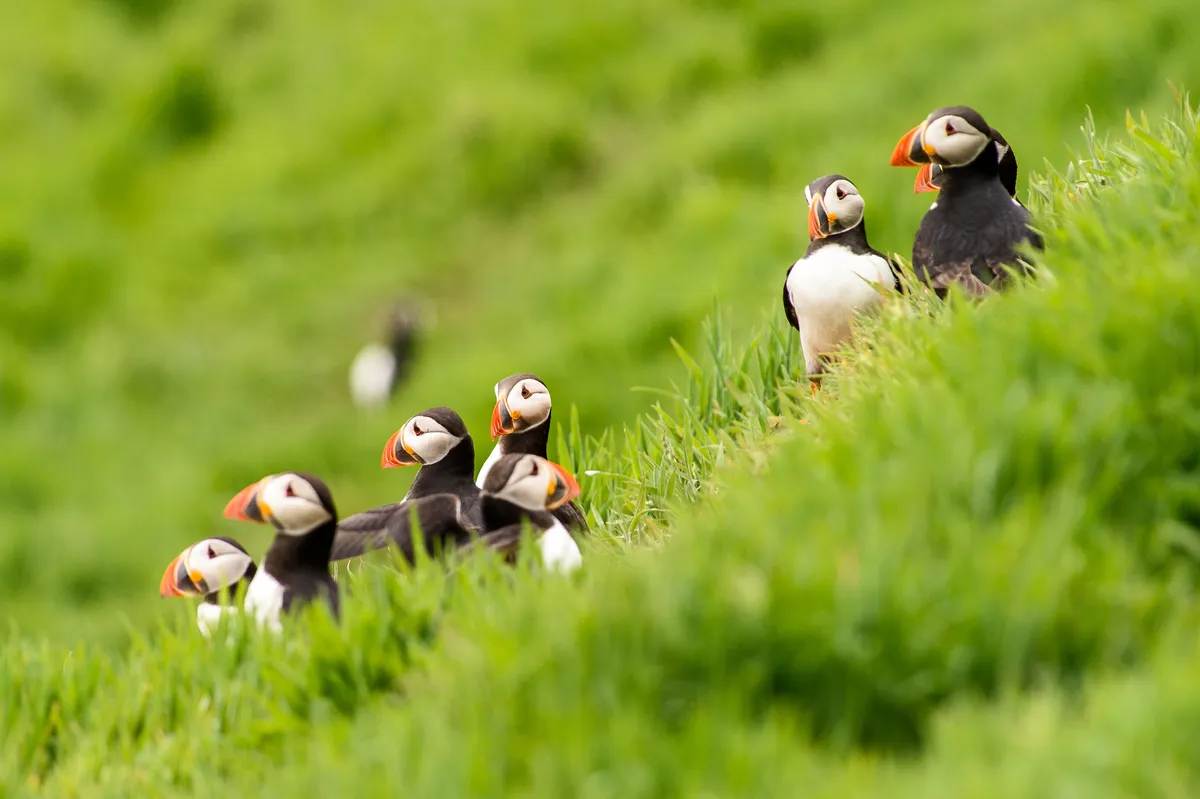
Are there any species or experiences that you'd like to see or do, that you haven't yet?
I'm well aware of the fact I'm getting older, and I'm actually starting for the first time ever to build like a bucket list of things in that in the UK that I've never seen that I'd love to. Some of them are simple, and it's just a matter of time, but I've not had the time at the key moment.
One of the biggest one is stag beetles, I've never seen one. I got friends who live in West London and they say I need to go there in early June and they're all over the pavement and everywhere. So I really want to go and film something to do with stag beetles.
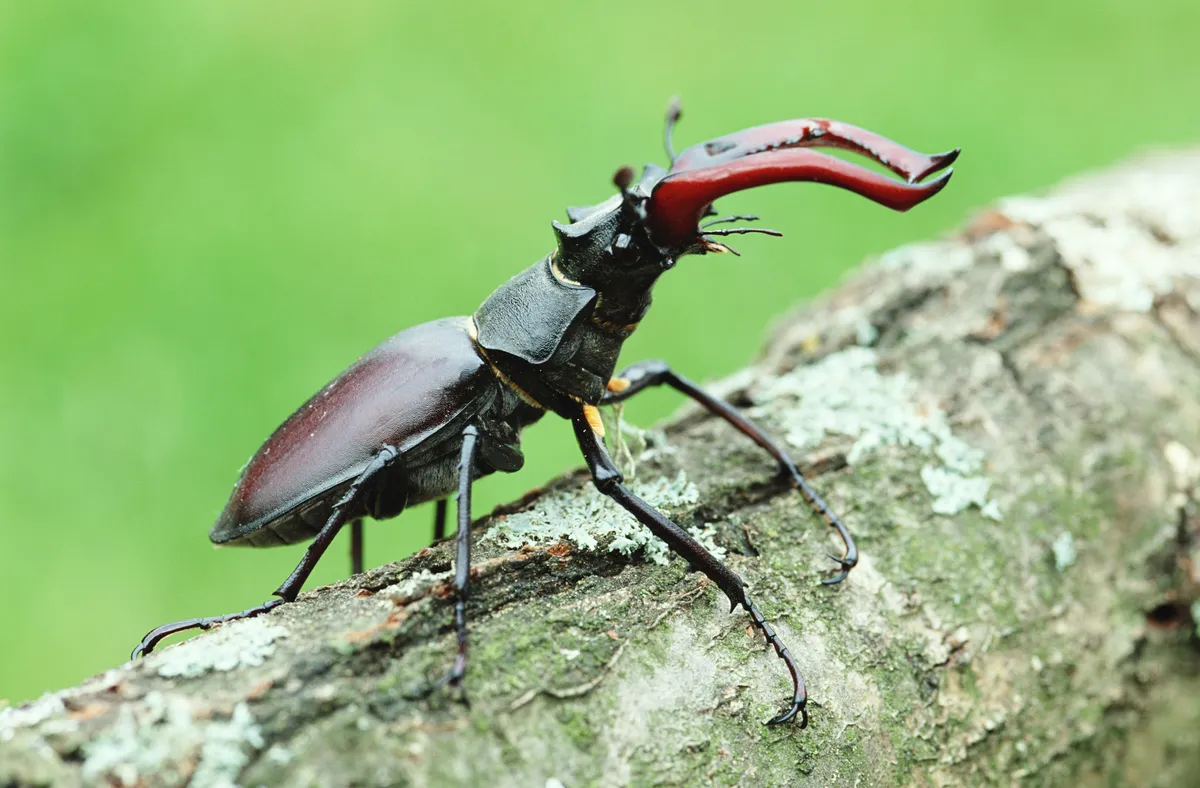
Also cirl buntings – it's a small songbird confined to the southwest of England. I've driven past the area where they are several times, but never managed to stop for them. So I'm going to make time one year to go down there specifically to sit down and watch cirl buntings.
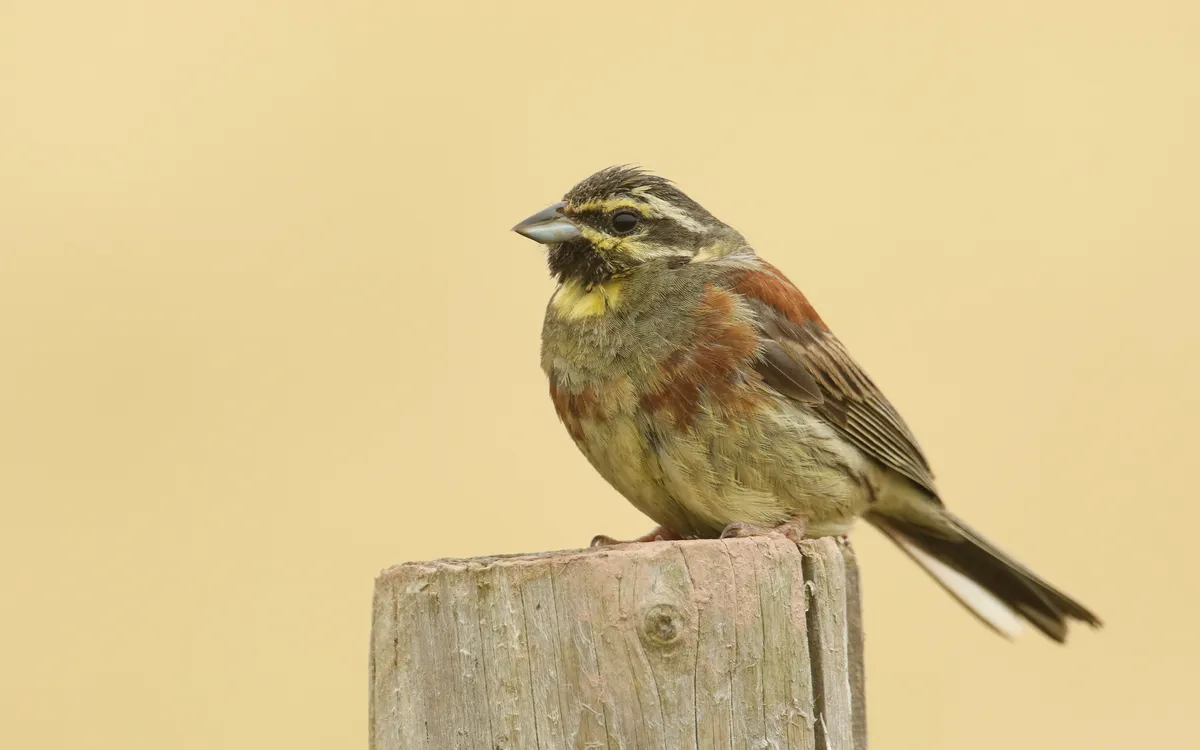
I want to get into the water, with all kinds in the UK – I'd really love to get into the water with orcas in the UK. Not to interfere with them, but just get in the water when the pod passes, that would be an amazing experience
And I want to see the small and flooded meadow on the outskirts of Oxford which is full of snake's head fritillaries, and I want to go and see lizard orchids, man orchids, and fly orchids.

So, it's a long long list of things in the UK that I've never seen, or I haven't seen for a long time.
How did you become a presenter?
I never, ever wanted to be a presenter. I worked for the RSPB in Wales, and for four and a half years, it was the best job in the world – monitoring bird populations, advising big landowners, and investigating crimes. Because of the work I did, the media was always interested and asking to film. I didn’t really want to, because it was a pain and it sort of interfered with my work.
Then when I left the RSPB, the BBC and S4C offered me work. I turned them down initially as I really did not want to go into the media. But then I was married, with a little baby, and I needed to earn some money, so I contacted the BBC and S4C and said, “Okay, let’s give it a go.” And that was 24 years ago now!
If you could reintroduce one species to Wales or the UK, what would it be?
For me, it would be golden eagles back into Wales because they such a fabulous bird and we have a close history with eagles.
For the UK, it would be the beaver. And I know that are small populations, but there's no reason at all why we shouldn't have beavers back right to across the UK. But the agricultural lobby in Wales is so powerful and they're very anti-beaver. Personally, I genuinely don't understand. I can understand their fear of lynx and wolves, I can understand that because of the all the sheep and lambs we have in Wales, and if predators started targeting those then that would be a major issue. But beavers, I don't understand that. We should have beaver throughout the UK really.
How do you feel about the future of wildlife and nature in the UK?
This is really difficult. I’m feeling hopeful but I’m also feeling full of despair. The real power is held by people who are more concerned with money and holding power. They are the ones that could really change things, if they wanted to, but from the top we see very few changes and these are slow changes. And in order to tackle what’s going with climate change and loss of biodiversity, we need positive rapid changes, and I don’t see that happening, I really don’t.
My main reason for saying that I’m feeling hopeful is that a lot of positive changes we’re seeing now are driven by young people, who are really passionate about the future of the planet.
Main image: Iolo Williams. © Jo Charlesworth/BBC
